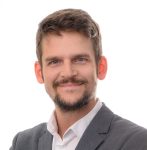Public Opinion in the Context of (Eastern) European Elections
This WAPOR webinar explores the evolving dynamics of public opinion in the context of elections across Eastern and broader European democracies. As electoral processes reflect the political attitudes and behaviors of diverse populations, this session focuses on the methodological and contextual challenges in capturing these insights, particularly in countries with unique sociopolitical landscapes.
Bringing together experts from Germany, Poland, and Hungary, the webinar will examine a range of topics, including voter behavior, political preferences, and the shifting survey environments in these nations. Discussions will highlight the interplay between innovative methodologies, such as large-scale electoral surveys and survey experiments, and the broader political contexts shaping these efforts. From the experiences of immigrant-origin voters in Germany to the political polling environment in Hungary and beyond, the webinar offers a comparative perspective on the challenges and opportunities in understanding public opinion in these dynamic regions.This session provides valuable insights for academics, practitioners, and anyone interested in the intersection of public opinion research and electoral politics in Europe.
Speakers: Jonas Elis (Germany); Michal Kotnarowski (Poland); Stefkovics Ádám (Hungary). Moderator: Jan-Karem Hohne (Germany)
 Jonas Elis is a postdoctoral researcher in the Working Group of Empirical Political Science at the University of Duisburg-Essen, Germany. He is the field and project manager of the Immigrant German Election Study II. In his research, Jonas Elis investigates the voting behaviour, political attitudes and political preferences of immigrant-origin voters. In addition, his methodological focus is on how to improve the mobilisation of immigrants into large-scale electoral surveys.
Jonas Elis is a postdoctoral researcher in the Working Group of Empirical Political Science at the University of Duisburg-Essen, Germany. He is the field and project manager of the Immigrant German Election Study II. In his research, Jonas Elis investigates the voting behaviour, political attitudes and political preferences of immigrant-origin voters. In addition, his methodological focus is on how to improve the mobilisation of immigrants into large-scale electoral surveys.
The Political Behaviour and Political Preferences of Immigrant-Origin Voters: The Challenges of Capturing a Hard-to-Survey Electorate in Large-Scale Electoral Surveys.
Electoral research consistently finds lower turnout rates for immigrant-origin voters compared to the majority population, as well as specific patterns of political behaviour and preferences among immigrants. Large-scale surveys that explicitly sample and interview immigrant-origin voters are rare and unsystematic across liberal democracies. This is due to the considerable methodological challenges of surveying such hard-to-survey populations. This seminar draws on new findings from the Immigrant German Election Study (IMGES) I and II. These are the first surveys to explicitly sample and interview voters of immigrant origin in the German national elections of 2017 and 2021. This webinar will (a) highlight the challenges of capturing the political behaviour, attitudes and preferences of immigrant-origin voters (b) show what we can learn from the available data, and (c) look forward to how we can track the political behaviour of immigrants in the coming decades.
 Ádám Stefkovics holds a PhD in Sociology. He is a research fellow at the HUN-REN Centre for Social Sciences in Budapest and an affiliate at the Institute for Quantitative Social Sciences at Harvard University. With 12 years of experience in polling at Századvég Foundation, his primary research interests include survey methodology and political sociology.
Ádám Stefkovics holds a PhD in Sociology. He is a research fellow at the HUN-REN Centre for Social Sciences in Budapest and an affiliate at the Institute for Quantitative Social Sciences at Harvard University. With 12 years of experience in polling at Századvég Foundation, his primary research interests include survey methodology and political sociology.
Survey Climate and Current Conditions of Political Public Opinion Polling in Hungary
Hungary has had a tradition of public opinion polling since the 1960s, with notable growth in election polling following the regime change in 1990. Like in other countries, the survey environment has changed dramatically throughout these years. Amid a sharp decline in response rates, face-to-face surveys have become marginalised, with telephone surveys dominating election polling and online surveys steadily gaining significance. Alongside changes in polling methods, public opinion in Hungary is also shifting rapidly as the Orbán-led Fidesz-KDNP coalition faces a new and growing challenger. This talk aims to characterise the short history and current landscape of methodological conditions under which political public opinion polling is conducted in Hungary. While the talk is methodologically focused, I also reflect on the political context in which changes occurred. I drew on several quantitative datasets, survey experiments and qualitative insights through interviews with Hungarian pollsters. The talk may be of interest to those studying changes in polling methods and Eastern European politics in general.
 Michal Kotnarowski, PhD, is a sociologist and political scientist employed at the Institute of Philosophy and Sociology Polish Academy of Sciences as an assistant professor. His research interests include electoral behaviour, international comparative studies, political culture and social research methodology. He has authored and co-authored several books and more than a dozen articles. He is a faculty member affiliated with the Graduate School of Social Research at the Polish Academy of Sciences. Since November 2021, he has held the position of the National Coordinator for Poland of theEuropean Social Survey.
Michal Kotnarowski, PhD, is a sociologist and political scientist employed at the Institute of Philosophy and Sociology Polish Academy of Sciences as an assistant professor. His research interests include electoral behaviour, international comparative studies, political culture and social research methodology. He has authored and co-authored several books and more than a dozen articles. He is a faculty member affiliated with the Graduate School of Social Research at the Polish Academy of Sciences. Since November 2021, he has held the position of the National Coordinator for Poland of theEuropean Social Survey.
Growing and Tightly Packed Peloton: Changes in the Landscape of Pre-election Polls in Poland Between 2011 and 2023.
In the presentation, we will base our analysis on a compilation of pre-election poll results conducted in Poland prior to the parliamentary elections of 2011, 2015, 2019, and 2023. This will be made possible by utilizing a unique database containing poll results from this period. We will examine how the accuracy of pre-election polls has evolved, i.e., how well the final polls before the elections predicted the actual outcomes. Specifically, we will focus on whether all polling organizations faced similar issues related to systematically underestimating or overestimating support for particular parties. Alternatively, we will explore whether specific polling agencies consistently overestimated or underestimated certain political parties. Another area of interest will be the extent to which trends in party support were reflected in the results of various polling organizations—whether the organizations aligned in reporting support trends or if notable discrepancies occurred. Finally, we will also investigate the phenomenon of herding, i.e., the potential alignment of poll results among different polling organizations. All these aspects will be analyzed in relation to successive elections, providing insights into how the landscape of pre-election polling in Poland has changed over time.


